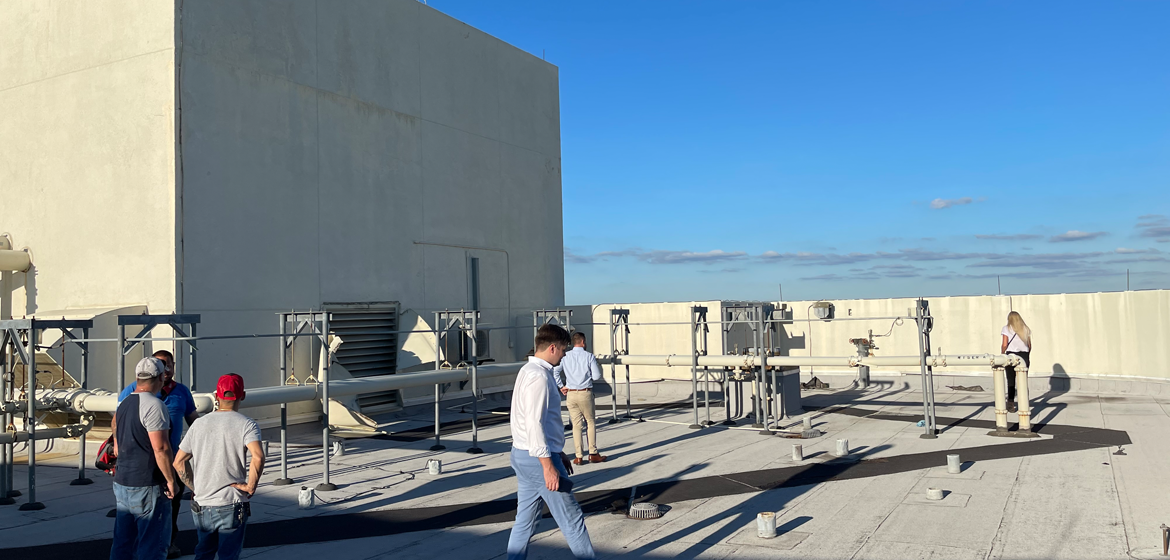The Role Of A Roofing Engineer In Building Construction

When it comes to constructing a building, the roof plays a vital role in ensuring structural integrity, weather protection, and energy efficiency. To achieve these objectives, the expertise of a roofing engineer is indispensable. A roofing engineer is a highly specialized professional responsible for designing, planning, and overseeing the installation and maintenance of roofing systems. In this article, we will delve into the essential role of a roofing engineer in building construction, exploring their key responsibilities, required skills, and the impact they have on the overall quality of a structure.
Roof Design and Planning
One of the primary responsibilities of a roofing engineer is to design and plan the roofing system of a building. This includes selecting the appropriate roofing materials, insulation, and drainage systems based on factors such as climate, building type, and budget. Roofing engineers must ensure that the design not only meets the aesthetic and functional requirements but also complies with local building codes and regulations.
The design phase involves meticulous calculations and considerations for load-bearing capacity, slope, and water runoff. Roofing engineers play a crucial role in determining the optimal roofing solution to prevent issues such as leaks, structural damage, and energy inefficiency.
Material Selection and Quality Control
Roofing engineers are responsible for selecting the right roofing materials that will provide durability and longevity to the structure. This involves evaluating various roofing materials such as shingles, tiles, metal, or flat roofing systems. They must consider factors like weather conditions, maintenance requirements, and cost-effectiveness.
Quality control is another key aspect of a roofing engineer’s role. They oversee the procurement of materials, ensuring that they meet industry standards and specifications. This attention to detail in material selection and quality control is essential for preventing premature roofing failures and ensuring the roof’s longevity.
Construction Oversight and Project Management
During the construction phase, roofing engineers play a pivotal role in overseeing the installation process. They work closely with contractors and construction teams to ensure that the roofing system is installed correctly, adhering to the approved design and quality standards. This involves conducting regular inspections, addressing any issues promptly, and making adjustments as necessary.
Effective project management is crucial to keep the roofing project on schedule and within budget. Roofing engineers coordinate the various aspects of the project, from scheduling deliveries to managing labor, to ensure the smooth execution of the roofing installation.
Roof Maintenance and Repairs
The responsibilities of a roofing engineer extend beyond the construction phase. They are also involved in the ongoing maintenance and repair of roofing systems. Regular inspections and maintenance are essential to identify potential issues early and prevent costly repairs or replacements.
Roofing engineers develop maintenance plans and schedules, including tasks like cleaning, sealing, and addressing minor repairs. Timely maintenance not only extends the life of the roofing system but also helps maintain its energy efficiency and performance.
Energy Efficiency and Sustainability Measures
In today’s environmentally conscious world, roofing engineers also play a crucial role in promoting energy efficiency and sustainability in building construction. They explore innovative roofing technologies and materials that can enhance a building’s energy performance, reduce heat absorption, and lower cooling costs.
Roofing engineers may recommend the use of cool roofs, green roofing systems, or solar panels to achieve energy-efficient and sustainable building designs. Their expertise in sustainable roofing solutions aligns with the growing demand for eco-friendly construction practices.
A roofing engineer is a key player in the successful construction and maintenance of a building’s roofing system. Their expertise in roof design, material selection, quality control, construction oversight, and sustainability measures contributes to the overall quality and durability of a structure.
